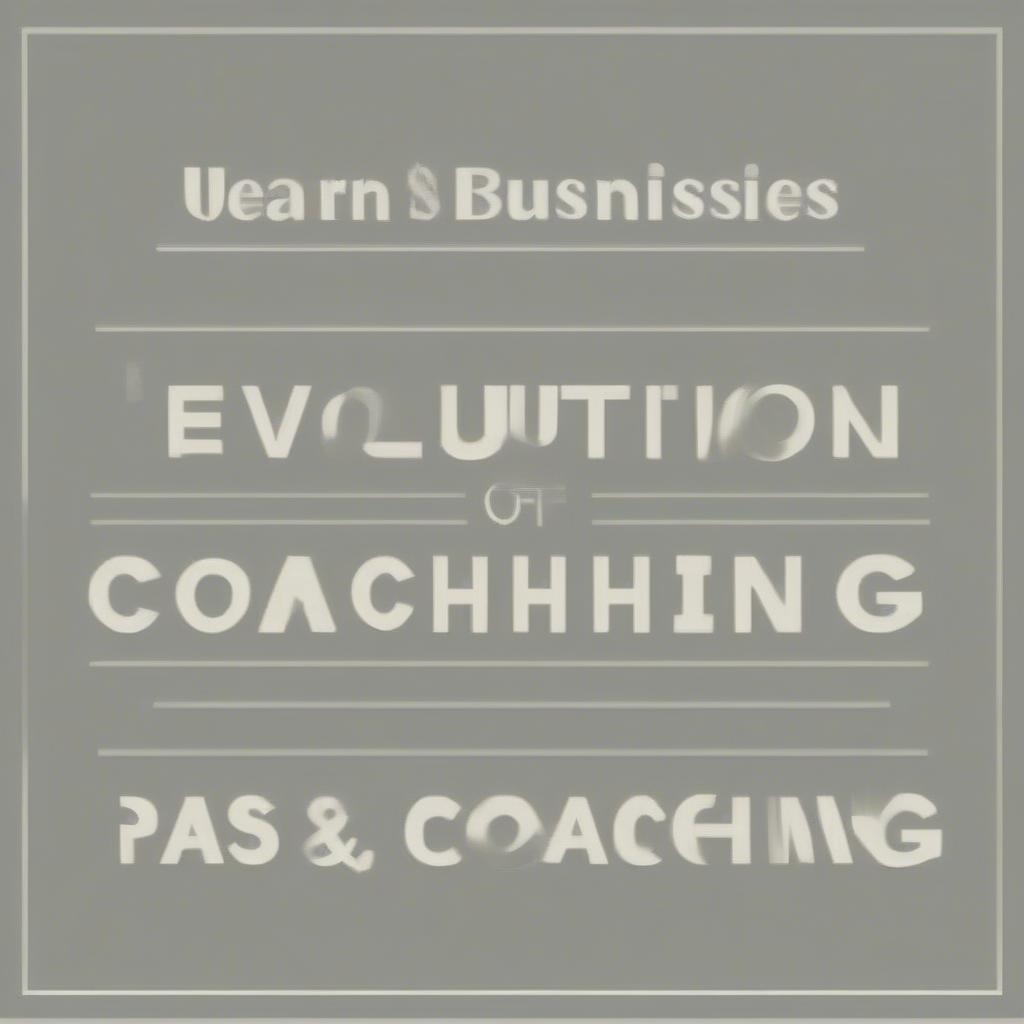
The coaching journey doesn’t end when the initial contract does. In fact, nurturing relationships with past coaching clients is not only a rewarding endeavor but also a strategic move for long-term success. These individuals already understand the value you bring, making them prime candidates for repeat business, referrals, and invaluable testimonials. This article will delve into the ‘how’ and ‘why’ of reconnecting, providing practical strategies, actionable steps, and templates to reignite those connections. We’ll explore the importance of coaching client retention, effective follow-ups, and the art of genuine relationship building so you can make the most of your past client network.
Why Reconnecting with Past Coaching Clients Matters
Before we jump into the strategies, let’s understand why putting in the effort to reconnect is worthwhile.
The Power of Existing Relationships in Coaching
Your existing clients are your warmest leads. They’ve already invested in your coaching services and understand your value proposition. Reconnecting isn’t about convincing someone of your worth; it’s about rekindling a positive relationship.
Here’s why it’s so powerful:
- Reduced Marketing Costs: Acquiring a new client is far more expensive than retaining an existing one. Re-engaging past clients can minimize your marketing spend.
- Increased Conversion Rates: Past clients are significantly more likely to book another coaching package or refer your services compared to cold leads.
- Higher Lifetime Value: A recurring client provides consistent revenue, boosting your long-term business stability.
- Enhanced Reputation: Happy clients become your advocates, sharing their positive experiences with others. This word-of-mouth marketing is priceless.
- Valuable Feedback: They can provide insightful feedback on your services and programs, helping you refine and improve.
Understanding the Importance of Client Retention in Coaching
Coaching client retention is more than just a goal; it’s a cornerstone of a sustainable coaching practice. Think of it like tending a garden; you must nurture your existing plants (clients) to yield a bountiful harvest. When you focus on retaining clients, you create a stable business that thrives on trust and familiarity.
The Pitfalls of Neglecting Past Coaching Clients
What happens if you don’t prioritize reconnecting?
- Lost Revenue: You’re essentially leaving money on the table. Neglecting past clients means missing out on valuable opportunities for repeat business.
- Missed Referrals: Clients who feel forgotten are less likely to refer their network to you.
- Damaged Brand Reputation: Clients may perceive neglect as a lack of care, potentially impacting your brand image.
- Increased Acquisition Costs: You’ll need to spend more time and money on acquiring new clients to compensate for the lost opportunities.
- Stagnant Growth: Without a pipeline of existing clients returning, your business growth may plateau.
When To Reconnect With Past Coaching Clients
Timing is crucial in reconnecting. Too soon, and it might feel pushy; too late, and they might forget about you. Here are key moments when you should consider reaching out:
Post-Coaching Engagement
- Immediately After Contract Completion: Don’t just say goodbye and disappear. Implement a systematic follow-up approach immediately after the coaching ends. This could include a feedback survey, a brief thank-you message, or an invitation to a special alumni group.
- One Month Follow-Up: Check in to see how they are progressing, offer any support, and ask if they have any questions. This reinforces your commitment to their success.
- Three Month Follow-Up: This is a good opportunity to assess the impact of the coaching and address any challenges.
- Six Month Follow-Up: By this point, they may be looking for new goals or challenges, making them open to more coaching.
Special Occasions and Milestones
- Holidays and Birthdays: A simple personalized message shows that you care.
- Work Anniversaries or Promotions: Congratulate them on their accomplishments.
- Industry-Specific Events: Reach out if you know they are participating in relevant events or conferences.
- Personal Milestones: If you have learned about any significant personal milestones through your conversations, show that you remember.
Strategic Reconnection Points
- New Service Offerings: If you have developed a new program or service that aligns with their needs, inform them about it.
- Workshops or Events: Invite past clients to your workshops, webinars, or other events.
- Content Sharing: Share relevant blog posts, articles, or resources that address their interests or challenges.
How to Reconnect: Practical Strategies and Actionable Steps
Now that you know why and when, let’s focus on the how. Here are some practical strategies with actionable steps:
1. Segment Your Past Client List
Before you begin reconnecting, organize your past clients into segments. You can segment based on:
- Coaching Niche: Group clients by the type of coaching they received (e.g., career coaching, leadership coaching, wellness coaching).
- Engagement Level: Segment those who were highly engaged vs. those who were less so.
- Results Achieved: Divide clients based on the level of success they had during their coaching.
- Timeline: Group clients based on the year or timeframe when they were coached.
Actionable Step:
- Create a spreadsheet or use a CRM to segment your clients based on the above categories.
2. Personalize Your Communication
Generic messages feel impersonal and are often ignored. Take the time to personalize each communication to resonate with the individual.
- Refer to Past Conversations: Mention specific goals they had, or challenges they faced.
- Acknowledge Their Accomplishments: Recognize any milestones they have achieved since working with you.
- Tailor Your Messaging: Customize your outreach based on their individual needs and interests.
Actionable Steps:
- Review your notes from past coaching sessions before reaching out.
- Use their name and refer to something specific about their past work with you.
- Avoid generic messaging.
3. Choose the Right Communication Channels
Use a variety of communication channels to reconnect, choosing the method that best suits your client’s preferences.
- Email: A reliable method for longer, more detailed communication.
- Phone Calls: Ideal for personal and real-time interactions.
- Text Messages: Useful for short, quick check-ins.
- Social Media: Connect on LinkedIn or other platforms where they are active.
- Personalized Video Messages: A unique way to stand out and show care.
Actionable Steps:
- Experiment with different channels to determine what works best for your audience.
- Consider the purpose of your outreach when choosing a channel.
4. Provide Ongoing Value
Reconnecting isn’t just about asking for more business. Focus on providing continued value to your past clients.
- Share Relevant Resources: Provide helpful articles, videos, or tools that address their ongoing challenges.
- Offer Exclusive Content: Create content specifically for past clients, such as webinars, checklists, or templates.
- Host Alumni Events: Organize virtual or in-person events for your past clients to network and learn.
Actionable Steps:
- Create a content calendar specifically for past clients.
- Develop exclusive offers, discounts, or bonus content.
5. The Power of Follow-Ups
Consistent follow-ups are crucial for maintaining connection. Don’t be a one-and-done contact.
- Set Reminders: Use a CRM or calendar to schedule regular follow-ups.
- Track Your Interactions: Keep a record of your touchpoints to avoid over-contact or gaps in communication.
- Be Patient: Rebuilding relationships takes time, so be consistent and patient.
Actionable Steps:
- Create a follow-up schedule for each client segment.
- Use a CRM to track your interactions and schedule reminders.
6. Focus on Relationship Building, not Just Selling
Remember that your primary goal is relationship building. Nurturing connections will naturally lead to future opportunities.
- Listen Actively: Engage in conversations by asking questions and listening to their responses.
- Be Authentic: Let your personality shine through your communication.
- Show Genuine Interest: Express your care for their success and well-being.
Actionable Steps:
- Practice active listening during interactions.
- Be genuine and authentic in your communications.
- Focus on building a connection.
7. Offer Targeted Re-engagement Packages
Once you’ve reconnected, consider offering tailored coaching packages designed for past clients.
- Alumni Packages: Offer specific packages that build upon previous coaching sessions.
- Refresher Packages: Offer packages that address current needs or challenges they’re facing.
- Advanced Coaching: Provide opportunities to elevate to the next level with a more advanced program.
Actionable Steps:
- Develop specific offers tailored for past clients.
- Consider providing a discount for returning clients.
8. Request Testimonials and Referrals
When you’ve successfully re-engaged, don’t be shy about asking for testimonials and referrals.
- Make it Easy: Provide clear instructions on how they can leave a review or refer someone.
- Offer Incentives: Consider offering a small incentive for referrals or testimonials.
- Thank Them: Express sincere gratitude for their support.
Actionable Steps:
- Create a simple process for leaving a review or referring a friend.
- Consider offering a small reward for referrals.
Templates for Reconnecting With Past Coaching Clients
Here are some templates to help you get started. Adapt these to fit your style and brand:
Template 1: Initial Check-In Email
Subject: Catching Up – How Are You Doing?
Hi [Client Name],
I hope this email finds you well.
It’s been a while since we last worked together, and I was thinking about you and your progress on [mention a goal they were working on]. I was curious to see how things are going for you now.
Is there anything you’ve been working on that you’re excited about? Any challenges you’d like to share?
I’d love to hear an update.
Warmly,
[Your Name]
Template 2: Follow-Up Email with Resources
Subject: A Resource Just For You
Hi [Client Name],
I was reflecting on our past coaching sessions about [mention a specific topic], and I thought this might be helpful for you.
I’ve created a [resource type, e.g., checklist, guide, article] about [topic] that you might find useful.
[Link to Resource]
I hope you find it valuable. I’d love to hear your thoughts.
Warm regards,
[Your Name]
Template 3: Invitation to Alumni Event
Subject: You’re Invited to a Special Alumni Event
Hi [Client Name],
I’m excited to invite you to our upcoming alumni event, where we’ll be discussing [event topic].
This is a great opportunity to connect with other past clients, learn something new, and share your experiences.
[Link to Event Information]
I hope to see you there!
Best,
[Your Name]
Template 4: Personalized Re-Engagement Email
Subject: Thinking About Your Next Steps
Hi [Client Name],
I was just reflecting on your time with [coaching program] and how far you’ve come. I remember when you shared [mention a specific story, challenge, or goal] during our coaching sessions.
I’m curious to know what you’re working on now and if you have any new goals on the horizon.
I’ve created a special re-engagement program for past clients who are looking to further their development. It’s designed to [briefly explain the program’s benefits].
Would you be open to a brief chat to discuss what this could look like for you?
Best, [Your Name]
Template 5: Request for Testimonial
Subject: Could You Share Your Experience?
Hi [Client Name],
I hope this email finds you well.
I wanted to reach out and see if you would be willing to share your experience from your coaching with me. Your feedback is invaluable in helping others learn about the benefits of coaching.
If you’re comfortable doing so, you could share a few sentences or a short paragraph about your experience, and I would love to share it on our website.
Thank you in advance for your time and support.
Best regards,
[Your Name]
Leveraging Learn Business for Enhanced Coaching Client Retention
At Learn Business, we understand the challenges coaches face when it comes to coaching client retention and relationship building. That’s why we offer a suite of resources and templates designed to streamline your business operations and support your growth.
How Learn Business Helps Coaches:
- Customizable Templates: Our extensive template library provides ready-to-use resources for client onboarding, follow-up emails, feedback surveys, and more.
- CRM Integration: Our tools can help you easily manage client communication, track interactions, and schedule follow-ups.
- Content Creation Resources: We provide templates and guidance for creating valuable content, such as blog posts, articles, and email newsletters.
- Marketing Strategies: We offer proven strategies to help you re-engage past clients and attract new ones.
- Expert Advice: Learn Business provides expert guidance to help you navigate the complexities of running a successful coaching practice.
Benefits of Using Learn Business:
- Time Savings: Our templates and tools streamline your workflows, freeing up valuable time to focus on your clients.
- Increased Efficiency: Our CRM integration and client management tools help you stay organized and on top of your communication.
- Professionalism: Our polished templates and branding resources enhance your professional image.
- Improved Client Engagement: Our resources enable you to deliver consistent value and enhance your client relationships.
- Scalable Growth: Our tools and strategies support your business as you grow and expand.
By integrating Learn Business into your coaching practice, you can not only retain your existing clients but also cultivate a strong and sustainable coaching business. We provide tailored solutions designed to meet the specific needs of your business. Visit [Learn Business website] to explore how we can support your growth.
Conclusion
Reconnecting with past coaching clients is a powerful strategy that can significantly impact your coaching practice. By implementing the strategies discussed in this article – from segmenting your clients to personalizing your communications and offering ongoing value – you can cultivate lasting relationships that benefit both your clients and your business. Remember, consistent follow-ups and genuine relationship building are key to unlocking the full potential of your past client network, contributing to higher coaching client retention and long-term success. Don’t just focus on finding new clients; nurture the valuable connections you already have.



Leave a Reply